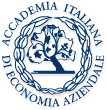Genova città “smart”: alcune considerazioni in merito alla valutazione delle performance
As everyone now knows, the urban population growth and the rapid process of urbanization together with the increased complexity of life conditions are, generally speaking, characterizing the context of the principle cities in the world. Modern cities try to create new models of government in order to became more efficient, sustainable and liveable both for citizens and organizations. These are the well-known “smart cities” in which, according to recent literature, appropriate use of technology and adequate investments in infrastructures, transport and ICT should guarantee both a high quality of life and more competitiveness and sustainable development.
Due to the fact that “Smart City” can be considered as a very complex and long-lasting strategy involving various stakeholders, producing different benefits and regarding different elapses of time to be realized, it requires a framework to analyse both stakeholders and benefits, to drive the implementation toward the best performance. In particular, the difficulty in defining indicators focused on the results of multifaceted smart cities policies imposes the use of specific and articulate models suggested by private companies or public organizations.
In this work the city of Genoa has been considered to try to evaluate Smart City benefits during the last two-year period; to do this the Smart City Index Model has been chosen and analyzed. This model seems to be particularly effective in evaluating the direct benefits of a Smart City, in national context, and permits us to compare various cities. At least, a comparison of the benefits of smart policies in the four main ligurian cities has been conducted.




